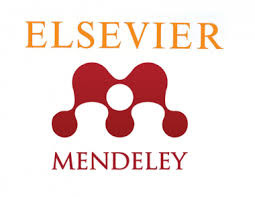INTERNATIONAL JOURNAL OF CREATIVE RESEARCH THOUGHTS - IJCRT (IJCRT.ORG)
International Peer Reviewed & Refereed Journals, Open Access Journal
IJCRT Peer-Reviewed (Refereed) Journal as Per New UGC Rules.
ISSN Approved Journal No: 2320-2882 | Impact factor: 7.97 | ESTD Year: 2013
Call For Paper - Volume 14 | Issue 2 | Month- February 2026
Scholarly open access journals, Peer-reviewed, and Refereed Journals, Impact factor 7.97 (Calculate by google scholar and Semantic Scholar | AI-Powered Research Tool) , Multidisciplinary, Monthly, Indexing in all major database & Metadata, Citation Generator, Digital Object Identifier(CrossRef DOI)
Contact Us Click Here
WhatsApp Contact Click Here
Volume 13 | Issue 4 |
| IJCRT Journal front page | IJCRT Journal Back Page |
Paper Title: EXPLORING THE IMPACT OF EMPLOYEE EMPOWERMENT ON PERSONAL DEDICATION AND WORK EFFICIENCY AMONG BANKING STAFF IN SOUTH INDIA.
Author Name(s): DR GUNAVELAN G, Dr P.PRASATH KUMAR
Published Paper ID: - IJCRT2504348
Register Paper ID - 281403
Publisher Journal Name: IJPUBLICATION, IJCRT
DOI Member ID: 10.6084/m9.doi.one.IJCRT2504348 and DOI :
Author Country : Indian Author, India, 636705 , DHARMAPURI, 636705 , | Research Area: Commerce All Published Paper URL: http://ijcrt.org/viewfull.php?&p_id=IJCRT2504348 Published Paper PDF: download.php?file=IJCRT2504348 Published Paper PDF: http://www.ijcrt.org/papers/IJCRT2504348.pdf
Your Paper Publication Details:
Title: EXPLORING THE IMPACT OF EMPLOYEE EMPOWERMENT ON PERSONAL DEDICATION AND WORK EFFICIENCY AMONG BANKING STAFF IN SOUTH INDIA.
DOI (Digital Object Identifier) :
Pubished in Volume: 13 | Issue: 4 | Year: April 2025
Publisher Name : IJCRT | www.ijcrt.org | ISSN : 2320-2882
Subject Area: Commerce All
Author type: Indian Author
Pubished in Volume: 13
Issue: 4
Pages: c934-c941
Year: April 2025
Downloads: 114
E-ISSN Number: 2320-2882
Abstract
Human resource management is essential for any kinds of organization dealing with people. Human resource is one of the most important resources for all types of organizations. The success of any organization depends onits human resources i.e. employees. Employees with good qualities and commitment towards the assignedtaskincreasethejobperformancetherebyincreasingtheorganizational performance. Every organization needs to maintain and manage the human resources efficiently and effectively. Therefore, human resource manager plays a vital role in maintaining the human resources such as newly recruited employees, well trained employees within the organization for a certain period of time. Every individual in the organizationneedsempowermentinordertoenjoytheworkatworkplace.Empowered employees help the individual to have better commitment in the workplace and committed employees ensure increased job performance. However, the changing patternofworldwidebusinessconditionandtomeettheneedsofthediversecustomer and stakeholder, employees have to face various challenges in their workplace
Licence: creative commons attribution 4.0
License
Keywords
Employee Empowerment, Banking staff, Workers,
License
Paper Title: Intelligent Drug Recommendation System For Medical Crisis Using Machine Learning
Author Name(s): T. Sravanthi, G. Eswar Srinivas, M. Sunil, M. Syamala, P. Arun Kumar
Published Paper ID: - IJCRT2504347
Register Paper ID - 280214
Publisher Journal Name: IJPUBLICATION, IJCRT
DOI Member ID: 10.6084/m9.doi.one.IJCRT2504347 and DOI :
Author Country : Indian Author, India, 530016 , visakhapatnam, 530016 , | Research Area: Science and Technology Published Paper URL: http://ijcrt.org/viewfull.php?&p_id=IJCRT2504347 Published Paper PDF: download.php?file=IJCRT2504347 Published Paper PDF: http://www.ijcrt.org/papers/IJCRT2504347.pdf
Your Paper Publication Details:
Title: INTELLIGENT DRUG RECOMMENDATION SYSTEM FOR MEDICAL CRISIS USING MACHINE LEARNING
DOI (Digital Object Identifier) :
Pubished in Volume: 13 | Issue: 4 | Year: April 2025
Publisher Name : IJCRT | www.ijcrt.org | ISSN : 2320-2882
Subject Area: Science and Technology
Author type: Indian Author
Pubished in Volume: 13
Issue: 4
Pages: c928-c933
Year: April 2025
Downloads: 123
E-ISSN Number: 2320-2882
Abstract
The Drug Recommendation System in Medical Emergencies using Machine Learning is a web-based application designed to predict suitable medications based on a given set of symptoms. The system is built using the Flask framework and integrates a pre-trained Random Forest model to process user-inputted symptoms and generate predictions. The application provides functionalities such as user login, dataset upload, data preview, and prediction visualization through an interactive web interface. The system allows users to input symptoms, which are then processed by the machine learning model to determine an appropriate drug recommendation. Additionally, the platform features a structured navigation system, carousel-based UI elements, and multiple web pages for different functionalities, including performance analysis and data visualization. This project aims to enhance accessibility to medical predictions by leveraging machine learning for symptom-based drug recommendations.
Licence: creative commons attribution 4.0
License
Keywords
Drug Recommendation, Random Forest, Symptom-Based Prediction, Web Application, Medical Emergencies
License
Paper Title: Digital Retelling of Ramayana: The Intersection of Technology and Literature in Modern Storytelling
Author Name(s): Yashna Kaushik, Dr. Surbhi Saraswat
Published Paper ID: - IJCRT2504346
Register Paper ID - 281727
Publisher Journal Name: IJPUBLICATION, IJCRT
DOI Member ID: 10.6084/m9.doi.one.IJCRT2504346 and DOI :
Author Country : Indian Author, India, 110085 , New Delhi, 110085 , | Research Area: Medical Science All Published Paper URL: http://ijcrt.org/viewfull.php?&p_id=IJCRT2504346 Published Paper PDF: download.php?file=IJCRT2504346 Published Paper PDF: http://www.ijcrt.org/papers/IJCRT2504346.pdf
Your Paper Publication Details:
Title: DIGITAL RETELLING OF RAMAYANA: THE INTERSECTION OF TECHNOLOGY AND LITERATURE IN MODERN STORYTELLING
DOI (Digital Object Identifier) :
Pubished in Volume: 13 | Issue: 4 | Year: April 2025
Publisher Name : IJCRT | www.ijcrt.org | ISSN : 2320-2882
Subject Area: Medical Science All
Author type: Indian Author
Pubished in Volume: 13
Issue: 4
Pages: c918-c927
Year: April 2025
Downloads: 117
E-ISSN Number: 2320-2882
Abstract
This paper examines how the Indian epic Ramayana is rewritten with the help of technology and writing in the digital medium. With the advancement of digital media, the ancient books like the Ramayana are converting into an engaging visual experience. Among other major digital versions of the story that are the focus of this study includes Ramayana: The Epic (2010), an animated movie that was directed by Chetan Desai, and Ramayana: Clash of Ram - an interactive video game. This research looks at how these digital versions do transformation constructs, captivates everyone and affects how a person understands culture. By using a qualitative method within the ambit of Digital Humanities, it deals with how-the differences in structure, themes, and characterization between traditional manuscripts and their digital adaptations were studied. Digital Humanities is a term for viewing how culture has been mediated and is creating the transformed tales. It examines how digital versions of canonical texts change the way they were previously perceived and dramatically reconceives their notion of authenticity and representation. The study also investigates how new technologies such as AI, VR, and AR disrupt the traditional storytelling form by making the experience much more immersive. However, these new technologies also ignite the issues of culture preservation or rather defining true stories. Digital Humanities, as such, explores how the Ramayana became digital. It investigates technology's interface with archaic writings and modern digital culture. It then ends by gauging the "good" and "bad" for digital storytelling and bystanders to ensure that epics like the Ramayana will still obtain importance as technology advances.
Licence: creative commons attribution 4.0
License
Paper Title: EFFECT OF LABOUR LAWS ON DECENT WORK
Author Name(s): Pragya Singh, Dr. Vandna Munjal
Published Paper ID: - IJCRT2504345
Register Paper ID - 281633
Publisher Journal Name: IJPUBLICATION, IJCRT
DOI Member ID: 10.6084/m9.doi.one.IJCRT2504345 and DOI :
Author Country : Indian Author, India, - , -, - , | Research Area: Science and Technology Published Paper URL: http://ijcrt.org/viewfull.php?&p_id=IJCRT2504345 Published Paper PDF: download.php?file=IJCRT2504345 Published Paper PDF: http://www.ijcrt.org/papers/IJCRT2504345.pdf
Your Paper Publication Details:
Title: EFFECT OF LABOUR LAWS ON DECENT WORK
DOI (Digital Object Identifier) :
Pubished in Volume: 13 | Issue: 4 | Year: April 2025
Publisher Name : IJCRT | www.ijcrt.org | ISSN : 2320-2882
Subject Area: Science and Technology
Author type: Indian Author
Pubished in Volume: 13
Issue: 4
Pages: c902-c917
Year: April 2025
Downloads: 117
E-ISSN Number: 2320-2882
Abstract
This paper explores the idea of first rate employment as defined via the global Labour organisation (ILO) and examines the function of exertions legal guidelines in promoting honest, secure, and equitable paintings environments. decent work, encompassing fair wages, place of job safety, social safety, and inclusivity, is quintessential to human properly-being, financial balance, and social concord. The paper in addition analyses how labor laws, which include minimum wage requirements, administrative center protection regulations, anti-discrimination measures, and social protection advantages, function important equipment in translating the standards of decent paintings into practice. The studies additionally delves into the challenges and opportunities associated with exertions laws, specially in light of the upward push of the gig economy and casual sectors. whilst exertions laws have proven achievement in sure areas like Scandinavia and Germany, issues consisting of susceptible enforcement, exclusion of casual workers, and cultural resistance continue to be widespread challenges. The paper concludes through emphasizing the want for adaptive hard work policies which could address evolving group of workers dynamics and make contributions to the achievement of worldwide sustainable development goals, ensuring that every one employees revel in decent paintings possibilities.
Licence: creative commons attribution 4.0
License
Keywords
first rate paintings, labor laws, place of job protection, Social security, Gig economy, Sustainable development desires.
License
Paper Title: RECOGNITION OF FAKE CURRENCY DETECTION USING CNN
Author Name(s): S.Tejaswi, D.Darshan Kumar,, R. Nani, CH.Keerthana, M. Tarun
Published Paper ID: - IJCRT2504344
Register Paper ID - 281021
Publisher Journal Name: IJPUBLICATION, IJCRT
DOI Member ID: 10.6084/m9.doi.one.IJCRT2504344 and DOI :
Author Country : Indian Author, India, 530016 , Visakhapatnam, 530016 , | Research Area: Science and Technology Published Paper URL: http://ijcrt.org/viewfull.php?&p_id=IJCRT2504344 Published Paper PDF: download.php?file=IJCRT2504344 Published Paper PDF: http://www.ijcrt.org/papers/IJCRT2504344.pdf
Your Paper Publication Details:
Title: RECOGNITION OF FAKE CURRENCY DETECTION USING CNN
DOI (Digital Object Identifier) :
Pubished in Volume: 13 | Issue: 4 | Year: April 2025
Publisher Name : IJCRT | www.ijcrt.org | ISSN : 2320-2882
Subject Area: Science and Technology
Author type: Indian Author
Pubished in Volume: 13
Issue: 4
Pages: c896-c901
Year: April 2025
Downloads: 109
E-ISSN Number: 2320-2882
Abstract
Deepfake technology has advanced significantly, posing serious threats in the form of manipulated media, including synthetic audio that mimics real human voices. This project presents a Deepfake Audio Detection System that utilizes Mel-Frequency Cepstral Coefficients (MFCCs) as feature representations and a Support Vector Machine (SVM) classifier to differentiate between genuine and deepfake audio samples. The system extracts MFCC features from .wav files, scales them using Standard Scaler, and classifies them using a pre-trained SVM model. The Flask-based web interface allows users to upload audio files and receive real-time classification results. Experimental evaluation demonstrates the system's ability to effectively distinguish deepfake audio, contributing to enhanced digital media security.
Licence: creative commons attribution 4.0
License
Keywords
Fake Audio Identification, Digital Media Security, Audio Classification, Feature Extraction, Flask Web Application.
License
Paper Title: Hydrogel: From Preparation to Applications - A Review on Key Properties and Formulation Techniques
Author Name(s): Mr. Abhishek Ramesh Bhagwat, Dr. Sonia Singh, Prof. Shreeya Belwalkar, Prof. Pallavi Kaple
Published Paper ID: - IJCRT2504343
Register Paper ID - 281585
Publisher Journal Name: IJPUBLICATION, IJCRT
DOI Member ID: 10.6084/m9.doi.one.IJCRT2504343 and DOI :
Author Country : Indian Author, India, 413221 , solapur, 413221 , | Research Area: Pharmacy All Published Paper URL: http://ijcrt.org/viewfull.php?&p_id=IJCRT2504343 Published Paper PDF: download.php?file=IJCRT2504343 Published Paper PDF: http://www.ijcrt.org/papers/IJCRT2504343.pdf
Your Paper Publication Details:
Title: HYDROGEL: FROM PREPARATION TO APPLICATIONS - A REVIEW ON KEY PROPERTIES AND FORMULATION TECHNIQUES
DOI (Digital Object Identifier) :
Pubished in Volume: 13 | Issue: 4 | Year: April 2025
Publisher Name : IJCRT | www.ijcrt.org | ISSN : 2320-2882
Subject Area: Pharmacy All
Author type: Indian Author
Pubished in Volume: 13
Issue: 4
Pages: c882-c895
Year: April 2025
Downloads: 135
E-ISSN Number: 2320-2882
Abstract
A hydrogel is a network of hydrophilic polymer chains, similar to a colloidal gel in which water is dispersed medium. Hydrogels, whether natural or manmade, are highly absorbent polymeric networks that can contain over 90% water. Because of their high water content, hydrogels are flexible and comparable to natural tissue. The literature on this topic is growing, particularly in scientific research fields. This paper aims to evaluate the literature on hydrogel classification, physical and chemical properties, preparation methods, and technological feasibility.
Licence: creative commons attribution 4.0
License
Keywords
Hydrogel, colloidal gel, hydrophilic, Chemical cross-linking, Polymer, Application.
License
Paper Title: "A Study on the Security Threats in Digital Payment Systems in Malappuram District"
Author Name(s): Sanoob C, SAINUL ABID V, Sabir sabah k, Surayya, Muhammed Favas K
Published Paper ID: - IJCRT2504342
Register Paper ID - 280436
Publisher Journal Name: IJPUBLICATION, IJCRT
DOI Member ID: 10.6084/m9.doi.one.IJCRT2504342 and DOI :
Author Country : Indian Author, India, 676523 , Karuvarakundu , 676523 , | Research Area: Commerce All Published Paper URL: http://ijcrt.org/viewfull.php?&p_id=IJCRT2504342 Published Paper PDF: download.php?file=IJCRT2504342 Published Paper PDF: http://www.ijcrt.org/papers/IJCRT2504342.pdf
Your Paper Publication Details:
Title: "A STUDY ON THE SECURITY THREATS IN DIGITAL PAYMENT SYSTEMS IN MALAPPURAM DISTRICT"
DOI (Digital Object Identifier) :
Pubished in Volume: 13 | Issue: 4 | Year: April 2025
Publisher Name : IJCRT | www.ijcrt.org | ISSN : 2320-2882
Subject Area: Commerce All
Author type: Indian Author
Pubished in Volume: 13
Issue: 4
Pages: c878-c881
Year: April 2025
Downloads: 131
E-ISSN Number: 2320-2882
Abstract
Abstract The rapid adoption of digital payment systems has transformed financial transactions, enhancing convenience and efficiency. However, these systems are also vulnerable to various security threats, including fraud, phishing attacks, data breaches, and unauthorized transactions. This study aims to examine the security threats in digital payment systems within Malappuram District. Using a structured survey of 100 respondents, the research analyses the awareness and experiences of digital payment users regarding security risks. The findings highlight the most prevalent threats and suggest measures to enhance security in digital transactions.
Licence: creative commons attribution 4.0
License
Keywords
Digital Payments, Security Threats, Cyber Fraud, Online Transactions
License
Paper Title: DEVELOPING A DATA-DRIVEN ARCHITECTURE FOR IMPLEMENTING AI-ENABLED DYNAMIC PRICING STRATEGIES IN THE AUTOMOTIVE INDUSTRY
Author Name(s): Dinesh Eswararaj, Ajay Babu Nellipudi, Vandana Kollati
Published Paper ID: - IJCRT2504341
Register Paper ID - 280547
Publisher Journal Name: IJPUBLICATION, IJCRT
DOI Member ID: 10.6084/m9.doi.one.IJCRT2504341 and DOI : http://doi.one/10.1729/Journal.44922
Author Country : Indian Author, United States of America, 92604 , Irvine , 92604 , | Research Area: Science and Technology Published Paper URL: http://ijcrt.org/viewfull.php?&p_id=IJCRT2504341 Published Paper PDF: download.php?file=IJCRT2504341 Published Paper PDF: http://www.ijcrt.org/papers/IJCRT2504341.pdf
Your Paper Publication Details:
Title: DEVELOPING A DATA-DRIVEN ARCHITECTURE FOR IMPLEMENTING AI-ENABLED DYNAMIC PRICING STRATEGIES IN THE AUTOMOTIVE INDUSTRY
DOI (Digital Object Identifier) : http://doi.one/10.1729/Journal.44922
Pubished in Volume: 13 | Issue: 4 | Year: April 2025
Publisher Name : IJCRT | www.ijcrt.org | ISSN : 2320-2882
Subject Area: Science and Technology
Author type: Indian Author
Pubished in Volume: 13
Issue: 4
Pages: c866-c877
Year: April 2025
Downloads: 142
E-ISSN Number: 2320-2882
Abstract
In the Automotive Industry, dynamic pricing is used a lot to make the most money and hold off the competition. The Automotive industry is using AI to build a data-centric framework that will allow dynamic pricing. This research will look at how they are doing it. Automakers can find out about how customers act, how the market is changing, and how competitors plan to beat them by using complicated formulas and strict data collection methods. The aim of this research is to analyze how dynamic pricing protects prices in various industries, with a particular focus on its application in the automotive industry. In addition, the research will discuss about data-driven design approaches incorporating with artificial intelligence (AI), mainly how these technologies could be used to improve pricing strategies by automating choices and letting prices adjust based on the market. Important things like how to use market trends to our advantage, gather and analyze data, and understand how customers behave, and merchandise sales are the focus areas of the paper. As part of the project, AI could also be used to improve pricing methods. Some of these are prediction analytics, machine learning, and reinforcement learning. We can figure out how to make the most money and guess what prices will be in the future by using algorithms that look at past price data. Finally, the study shows that price strategies that are driven by AI and design that is driven by data can have a big impact on the automotive industry. Businesses in the Automotive industry might be able to boost competition, new ideas, and customer trust by using dynamic pricing systems and staying honest all the way through.
Licence: creative commons attribution 4.0
License
Keywords
Dynamic pricing, Automotive industry, Data-driven architecture, AI algorithms, Pricing optimization, Consumer behavior, Ethical considerations, Regulatory compliance
License
Paper Title: REAL TIME FACE AGING PROGRESSION USING GAN's
Author Name(s): K. Jairam, SK.Sabeena, G. Tejaswi, M. Harika, K. VenkataYaswanth
Published Paper ID: - IJCRT2504340
Register Paper ID - 281796
Publisher Journal Name: IJPUBLICATION, IJCRT
DOI Member ID: 10.6084/m9.doi.one.IJCRT2504340 and DOI :
Author Country : Indian Author, India, 520008 , vja, 520008 , | Research Area: Science and Technology Published Paper URL: http://ijcrt.org/viewfull.php?&p_id=IJCRT2504340 Published Paper PDF: download.php?file=IJCRT2504340 Published Paper PDF: http://www.ijcrt.org/papers/IJCRT2504340.pdf
Your Paper Publication Details:
Title: REAL TIME FACE AGING PROGRESSION USING GAN'S
DOI (Digital Object Identifier) :
Pubished in Volume: 13 | Issue: 4 | Year: April 2025
Publisher Name : IJCRT | www.ijcrt.org | ISSN : 2320-2882
Subject Area: Science and Technology
Author type: Indian Author
Pubished in Volume: 13
Issue: 4
Pages: c861-c865
Year: April 2025
Downloads: 116
E-ISSN Number: 2320-2882
Abstract
In recent years, there has been significant rise in the recognition and adaption of Artificial Intelligence and Machine Learning. Now A days Face age progression is becoming a widely used technique in the modern era as it serves numerous applications. Real-time face aging progression using Generative Adversarial Networks (GANs) is an advanced deep learning approach that enables the realistic simulation of facial aging and rejuvenation. Unlike traditional image processing methods, GANs ensure photorealistic results by synthesizing fine-grained details such as wrinkles, skin texture, and facial shape variations. The proposed system can be applied in various fields, including forensics, entertainment, and digital personalization. By implementing real-time processing approach, which ensures instant and seamless age transformation, making it suitable for interactive applications. The integration of advanced deep learning techniques, such as attention mechanisms and progressive training, further enhances accuracy and realism. This study explores the potential of GAN-based face aging progression, highlighting its effectiveness in generating lifelike aging transformations while addressing challenges such as identity preservation and dataset biases. In our project, we will explore and implement face progression over different ages. We will use some frameworks, Libraries in Deep Learning Networks and Python to implement our application. Using Generative Adversarial Networks, we seek to generate older versions of oneself while preserving the identity of the individual. Using Generative Adversarial Networks, we seek to generate older versions of oneself while preserving the identity of the individual.
Licence: creative commons attribution 4.0
License
Keywords
Face Aging, Generative Adversarial Networks (GAN), Real Time Image Processing, Age Progression, Deep Learning, Computer Vision.
License
Paper Title: DIGITAL COMPETITION REGULATION IN INDIA: A COMPARATIVE ANALYSIS OF THE DIGITAL COMPETITION BILL 2024 AND ITS IMPACT ON BIG TECH COMPANIES AND MSMES IN INDIA AND THE EUROPEAN UNION
Author Name(s): Arya Panikker, Chetan dixit
Published Paper ID: - IJCRT2504339
Register Paper ID - 281749
Publisher Journal Name: IJPUBLICATION, IJCRT
DOI Member ID: 10.6084/m9.doi.one.IJCRT2504339 and DOI :
Author Country : Indian Author, India, 400072 , Mumbai, 400072 , | Research Area: Others area Published Paper URL: http://ijcrt.org/viewfull.php?&p_id=IJCRT2504339 Published Paper PDF: download.php?file=IJCRT2504339 Published Paper PDF: http://www.ijcrt.org/papers/IJCRT2504339.pdf
Your Paper Publication Details:
Title: DIGITAL COMPETITION REGULATION IN INDIA: A COMPARATIVE ANALYSIS OF THE DIGITAL COMPETITION BILL 2024 AND ITS IMPACT ON BIG TECH COMPANIES AND MSMES IN INDIA AND THE EUROPEAN UNION
DOI (Digital Object Identifier) :
Pubished in Volume: 13 | Issue: 4 | Year: April 2025
Publisher Name : IJCRT | www.ijcrt.org | ISSN : 2320-2882
Subject Area: Others area
Author type: Indian Author
Pubished in Volume: 13
Issue: 4
Pages: c835-c860
Year: April 2025
Downloads: 125
E-ISSN Number: 2320-2882
Abstract
Licence: creative commons attribution 4.0
License
Keywords
Digital competition act, Anticompetitive, Digital market, Ex-ante regulation, Systemically significant digital enterprises.
License
February 2026
Volume 14 | Issue 2
Last Date :
28-Feb-2026
Submit Manuscript Online Impact Factor: 7.97 Review Results : Within 02-03 Days Paper Publication : Within 02-03 Days

ISSN: 2320-2882 Impact Factor: 7.97 and ISSN APPROVED Journal Starting Year (ESTD) : 2013

ISSN: 2320-2882 Impact Factor: 7.97 and ISSN APPROVED Journal Starting Year (ESTD) : 2013

CONFERENCE PROPOSAL CONFERENCE PROCEEDINGS







































































